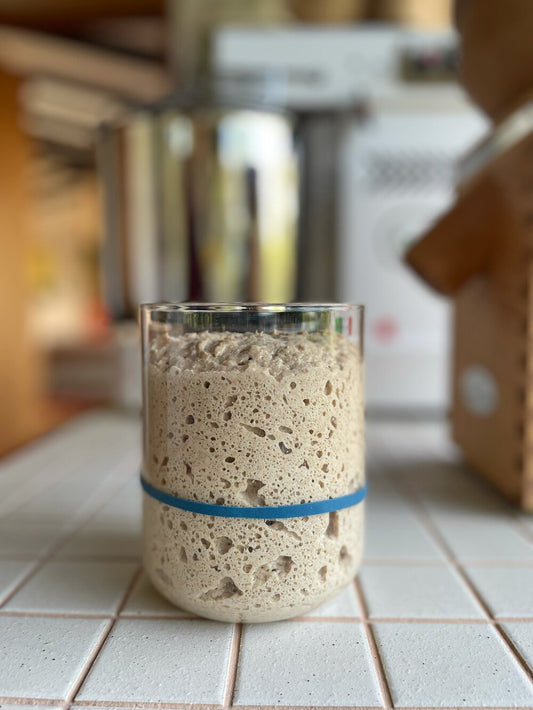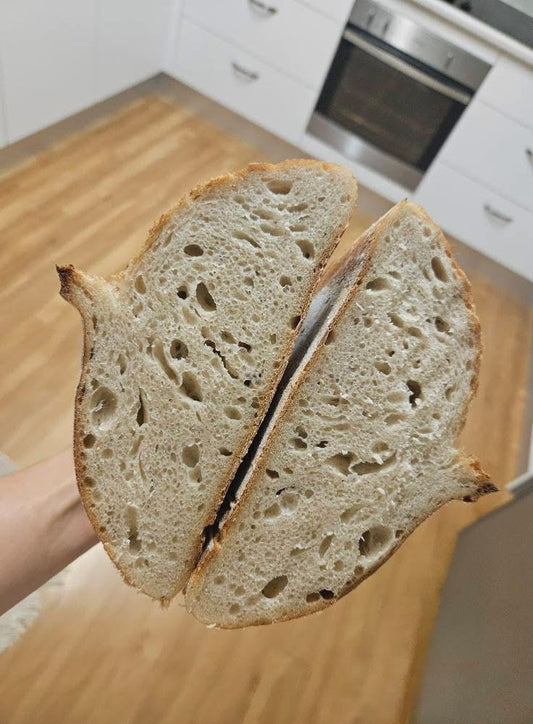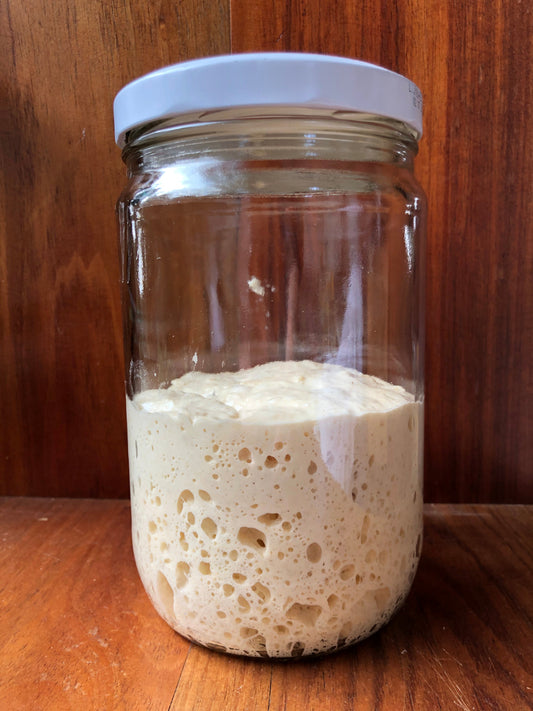What is Baker’s Percentage?

Baker's percentages (or baker's math) is a way of expressing the ratio of ingredients in bread making — including sourdough — based on the total weight of flour, which is always set to 100%. All other ingredients (water, salt, starter, etc.) are calculated as a percentage of the flour weight.
Why Baker's Percentages Matter:
- Makes it easy to scale recipes up or down.
- Allows quick comparison between different recipes.
- Helps understand hydration levels (how wet the dough is)
Common Baker's Percentages for Sourdough Bread:
| Ingredient | Typical Percentage |
|---|---|
| Flour | 100% |
| Water | 65% - 85% |
| Salt | 2% - 2.5% |
| Sourdough Starter | 10% - 30% (varies widely based on preference and recipe) |
Example: Basic Sourdough Formula (75% Hydration)
Let's say you start with 500g of flour:
| Ingredient | Percentage | Weight (grams) |
|---|---|---|
| Flour | 100% | 500g |
| Water | 75% | 375g |
| Salt | 2% | 10g |
| Sourdough Starter | 20% | 100g |
Note: In baker's percentages, the starter is usually counted as total weight, but keep in mind that starter itself contains both flour and water.
Quick Tip on Starter Calculation:
If your starter is at 100% hydration (equal parts flour and water), and the recipe calls for 100g of starter:
- It contributes 50g flour and 50g water to your recipe.
- Charges in starter hydration will influence the overall hydration of you dough.
Summary:
Baker's percentages make it easier to:
✔️ Scale batches.
✔️ Compare hydration levels.
✔️ Fine-tune your sourdough to your liking.




